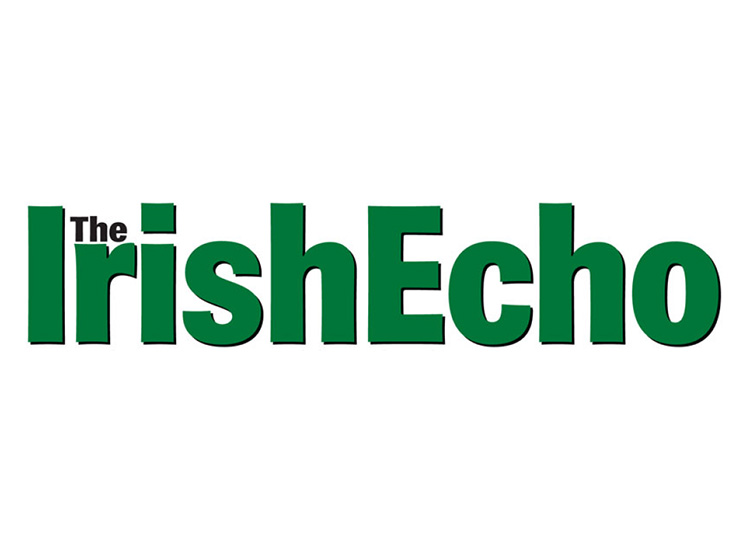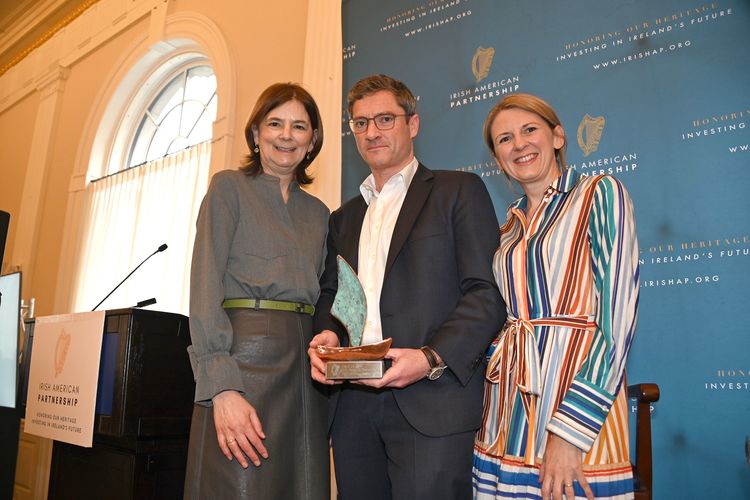There have been times over the years when Irish politics has been about as exciting as a rainy day in November. Voters have tired peering through the gloom trying to distinguish between one party and the next, one politician and another.
Not so in most recent years, a time in which the dramatic economic swings in the republic have been mirrored in contrasting styles of political engagement with voters, most especially between those oldest of rivals, Fine Gael and Fianna Fáil.
But while some things have changed beyond all recognition in Ireland over the past couple of decades, some aspects of the political game seem as familiar as that rainy day in the eleventh month of the year.
Fine Gael has long been associated with a phrase made popular by the late Dr. Garret FitzGerald and his Fine Gael colleagues back in the 1980s: "fiscal rectitude."
It was a simple enough economic formula associated with the notion that you can't spend what you don't have, and in order to spend it you have to raise the necessary revenue first, mainly through the levying of taxes.
It was also an idea that the more freewheeling Fianna Fáil of the time, led by the late Charles Haughey, embraced with some reluctance.
The party founded by Eamon de Valera, once it had consigned the party founder to the position of a portrait on the wall and little else, had seemingly adopted the view that there was lots of money to be made in Ireland, despite the obvious limitations of the domestic economy.
It was a view of things that would emerge anew and with vigor in the late 1990s, only to be followed by less than bountiful results twaodrs the end of the first decade of this century.
With the publication of the Mahon Report last week, the Irish electorate has been reminded again of a time when Fianna Fáil, as the dominant party in various coalition arrangements, was the guardian of a seemingly limitless landscape ready for the bulldozer and backhoe, and the generation of the kind of wealth that the party founders would have found difficult, if not impossible, to comprehend.
For a time it all seemed to work. The party, led by Bertie Ahern and then Brian Cowan, seemed to have a Midas touch that knew no bounds. Then it all went south.
From a Fianna Fáil perspective, a new bottom has been plumbed with the publication of Mahon, the resignation from the party of Bertie Ahern and others, and the final confirmation, at least to the degree that the tribunal was allowed determine according to its terms of reference, that the Ireland of the Celtic Tiger could give any banana republic a run for its money when it came to the running an economy that was, in truth, running amok.
That was then and this is now. The present government, with survivors on board from the lean and mean fiscal rectitude days, seems intent on being a latter day reflection of a Fine Gael-led government from a time when it was lampooned as a bunch of skinflints by an RTE comedy show called "Hall's Pictorial Weekly."
This image is not without foundation. Many will recall the FitzGerald-led administration that fell because finance minister John Bruton attempted to slap a Dickensian tax on children's shoes.
The latter day version of this political miscalculation, to put it politely, has been the current Fine Gael/Labour coalition's desire to slap a €100 charge on households. It doesn't seem like a lot of money, but when it's your last one hundred euro, or feels like it, then it is a hundred euro too far.
The charge, which comes due this Saturday, the last day of March, has resulted in some uproar and an almost Tea Party-like response from some opposition politicians, most of them, perhaps ironically, on the left of the Irish political spectrum.
But the charge, and the reaction to it, also transcends the political divide. To many, it simply looks like a government kicking the voters when they are well and truly down.
Now, there is evidently positive intent behind the idea of the charge. The government hopes to raise €160 million from it to help fund the likes of libraries and parks.
Nevertheless, as the New York Times recently reported, "throughout the European financial crisis, Ireland has won plaudits for the way it has handled austerity. But growth has stalled here once again, and an incipient tax revolt is being taken as a sign that even this most stoic of nations is becoming fed up."
The Times story reported plans for a widespread boycott of the charge, this in the land that gave birth to word "boycott."
The charge, and the growing opposition to it, is the kind of rock that John Bruton, all those years ago, was steering towards, seemingly oblivious to the collision ahead. Could the present government be on a similar collision course? We shall see soon enough.










